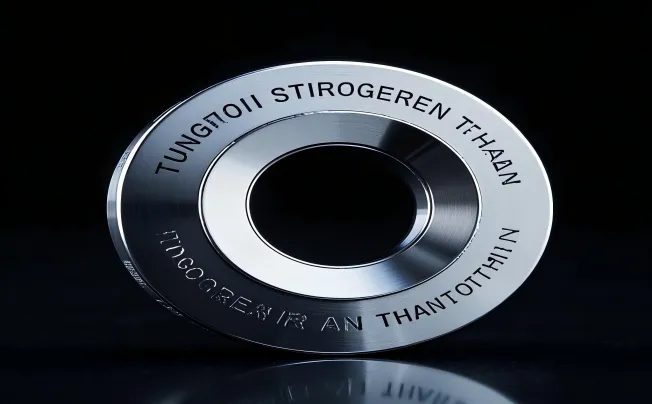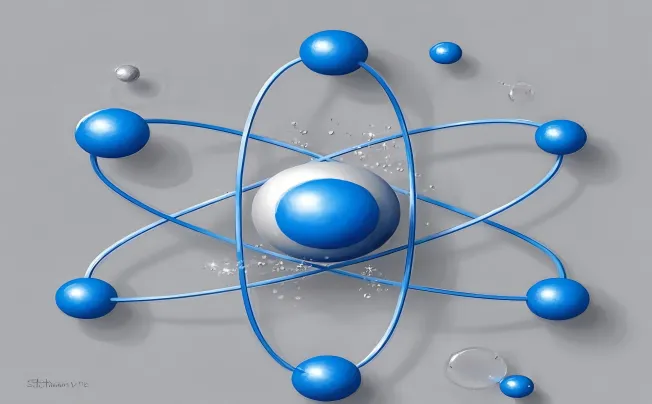Silicon, known for its remarkable versatility and unique properties, is a fundamental element on the periodic table with atomic number 14. With a shiny, metallic appearance and a brittle crystalline structure, silicon plays a crucial role in various industries due to its exceptional characteristics.
Silicon in the Electronics Industry
Use of Silicon in Semiconductor Manufacturing
Silicon, a fundamental element in the electronics industry, plays a pivotal role in semiconductor manufacturing. Semiconductors are the building blocks of modern electronic devices, powering everything from smartphones to computers.
Silicon's unique properties, such as its abundance and ability to conduct electricity under certain conditions, make it an ideal material for creating semiconductors. In the production process, silicon is purified to remove impurities and then doped with specific elements to control its electrical conductivity.
Role of Silicon Wafers in Integrated Circuits
Silicon wafers serve as the foundation for integrated circuits (ICs), also known as microchips or chips. These wafer-thin slices of silicon act as substrates on which intricate patterns of electronic components are etched using photolithography techniques.
The miniaturized circuitry on silicon wafers enables the creation of complex electronic systems within a compact space. The precision and uniformity of silicon wafers are crucial for ensuring the functionality and reliability of ICs used in various electronic devices.
Importance of Purity and Crystalline Structure in Semiconductor Production
Purity and crystalline structure are paramount considerations in semiconductor production using silicon. Impurities present in silicon can hamper its electrical properties and compromise the performance of semiconductor devices. Therefore, stringent purification processes are employed to eliminate impurities and achieve high levels of purity in the silicon material used for semiconductors.
Additionally, maintaining a crystalline structure during wafer formation is essential for ensuring consistent electrical characteristics across ICs produced on the same wafer batch. The quality control measures implemented to uphold purity and crystallinity standards contribute significantly to the overall efficiency and reliability of semiconductor manufacturing processes.
The Vital Role of Silicon in the Solar Energy Industry
Harnessing the Power of Photovoltaic Cells
Silicon plays a pivotal role in the solar energy industry, especially in the realm of photovoltaic cells. These cells are the heart of solar panels, converting sunlight into electricity through a process known as the photovoltaic effect. Silicon's abundance and unique properties make it an ideal material for constructing these cells.
When sunlight strikes a silicon cell, photons from the light interact with the silicon atoms, causing electrons to be knocked loose. This flow of electrons creates an electric current, which can then be harnessed for various applications.
Distinguishing Types of Silicon Used in Solar Panels
In solar panel manufacturing, three main types of silicon are commonly used: monocrystalline, polycrystalline, and amorphous silicon. Monocrystalline silicon solar cells are made from single-crystal structures, offering higher efficiency rates due to their uniformity and purity.
Polycrystalline silicon cells are composed of multiple crystal structures, making them slightly less efficient but more cost-effective than monocrystalline options. Amorphous silicon cells have a non-crystalline structure, allowing for flexibility and lower production costs but with reduced efficiency compared to crystalline counterparts.
Weighing Efficiency and Cost Considerations in Silicon Selection
When choosing between different types of silicon for solar panels, efficiency and cost considerations come into play. Monocrystalline silicon panels tend to have higher efficiency rates but come at a premium price due to their manufacturing process. Polycrystalline silicon panels offer a balance between efficiency and affordability, making them popular choices for many residential and commercial installations.
Amorphous silicon panels provide flexibility in design and lower production costs but may require more surface area to generate equivalent power output compared to crystalline options. Ultimately, selecting the right type of silicon for solar panels involves weighing these factors based on specific energy needs and budget constraints.
Silicon in the Construction Industry
The Versatility of Silicone Sealants for Building Applications
Silicone sealants have become an indispensable component in the construction industry, revolutionizing the way we build and fortify structures. Their unique properties make them ideal for a wide range of applications, providing architects and contractors with reliable solutions for sealing joints, windows, and doors.
One of the key features that sets silicone sealants apart is their exceptional flexibility. Unlike other sealing materials, silicones can withstand significant movement without losing their integrity or creating leaks.
This property makes them particularly suitable for buildings that may experience shifts due to environmental factors such as temperature fluctuations or structural settling. Another remarkable quality of silicone sealants is their outstanding durability.
These sealants exhibit excellent resistance to weathering, UV radiation, and chemicals commonly found in construction environments. With their ability to maintain performance over time, silicone sealants contribute to the long-term reliability and structural integrity of buildings.
Moreover, they offer excellent adhesion to a wide variety of substrates including glass, metals, concrete, and plastics. This versatility allows builders to use silicone sealants across various construction materials without compromising on quality or effectiveness.
Applications: Ensuring Optimal Sealing in Joints, Windows, and Doors
Sealing joints effectively is vital in preventing water infiltration and air leakage within a building structure. Silicone sealants are highly sought after for this purpose due to their water-repellency characteristics and superior elastomeric properties. They can form an efficient barrier against moisture ingress while accommodating joint movement caused by natural expansion or contraction.
Windows and doors are critical elements in any building's envelope that require proper sealing against external elements like wind-driven rain or drafts. Silicone sealants provide durable weatherproof seals that resist cracking under stress while maintaining flexibility during temperature variations.
In addition to these crucial applications, silicone sealants are also used extensively for bonding glass panels in curtain walls or skylights where high transparency is desired combined with exceptional durability against environmental exposure. With each passing year, advancements continue to be made in the formulation of silicone-based products tailored specifically for construction purposes.
Silicon In the Medical Industry
Properties of Silicone That Make It Ideal for Medical Applications
The unique properties of silicone make it a preferred material for medical devices over other alternatives. Silicone is biocompatible, meaning it does not elicit a significant immune response or toxicity when implanted in the body. Its soft and flexible nature allows for comfortable use in applications such as prosthetics and implants.
Moreover, silicone exhibits excellent temperature resistance, maintaining its physical properties across a wide range of temperatures encountered within the human body. This thermal stability ensures that silicone-based medical devices remain functional and reliable under varying conditions.
Applications of Silicone in Prosthetics and Implants
Silicone plays a crucial role in the field of prosthetics and implants by offering solutions that mimic natural tissues while providing durability and longevity. In prosthetics, silicone is used to create realistic skin-like covers for artificial limbs or facial prostheses. The soft texture and lifelike appearance of silicone make these prosthetic devices more comfortable and aesthetically pleasing for users.
In terms of implants, silicone is commonly utilized in breast implants due to its ability to maintain shape integrity while offering a natural feel. The versatility of silicone allows for customization according to patient needs, leading to successful outcomes in reconstructive surgeries.
Silicon in Automotive Industry
Use of Silicones in Automotive Manufacturing
Silicones play a vital role in the automotive industry due to their exceptional properties that enhance vehicle performance and safety. One of the primary applications of silicones in automotive manufacturing is as sealants and adhesives. These silicone-based products are used extensively during vehicle assembly to provide strong bonds, prevent leaks, and ensure proper insulation.
Silicone sealants create a reliable barrier against water, dust, and noise infiltration by sealing gaps between components such as windows, doors, and body panels. Additionally, silicone adhesives are employed to securely attach various parts of the vehicle's interior and exterior.
Role of Silicone Sealants and Adhesives in Vehicle Assembly
Silicone sealants and adhesives play a crucial role throughout the vehicle assembly process. During production, silicone sealants are used to bond windshields to the car body, providing structural integrity while offering excellent resistance against vibrations and temperature changes.
In addition to their adhesive properties, silicones maintain flexibility over time, allowing for expansion and contraction without compromising strength or causing cracks. This adaptability is especially valuable considering the dynamic nature of vehicles subjected to different weather conditions and terrain.
Benefits of Silicone Components in Ensuring Vehicle Durability and Performance
The use of silicone components further enhances the durability and performance of vehicles. Silicone-based gaskets help ensure leak-free connections between engine parts by maintaining a reliable seal under high pressure or extreme temperatures. Additionally, silicone-based materials are resistant to UV radiation, chemicals, oxidation, moisture ingress, and mechanical stress – characteristics that significantly contribute to prolonged component lifespan even under challenging conditions.
Furthermore, silicones can be found in critical automotive systems like braking mechanisms where they provide enhanced thermal stability required for efficient heat dissipation during braking operations that generate high temperatures. This feature helps prevent brake fade while improving overall safety on the road.








